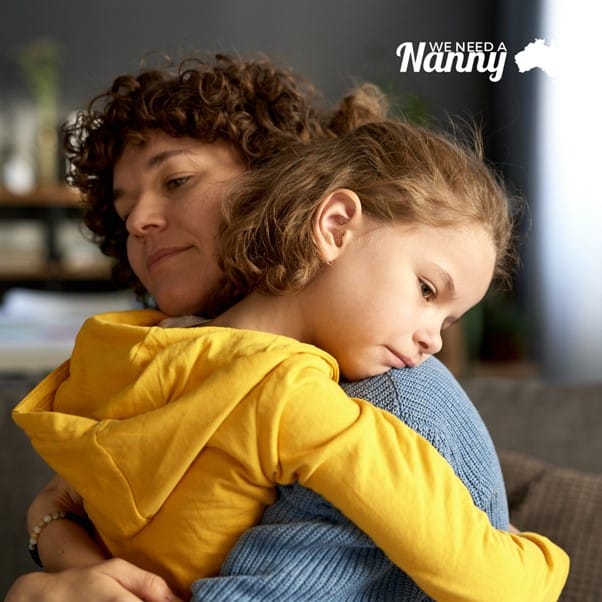Emotional regulation is an important skill for children to develop as it helps them manage their emotions effectively and navigate through various situations.
As a nanny, you play a crucial role in supporting children in their emotional growth and teaching them how to regulate their feelings. With some help from the Nanny’s Guide to Emotional Regulation in Children you can learn some essential tips and strategies that can help you in this process.
Understanding Emotional Regulation in Children
It is crucial to fully understand emotional regulation in children for their own well-being. Emotional regulation refers to the ability to recognise, understand, and manage one’s own emotions.
Children who have a good grasp of emotional regulation are better equipped to handle stress, build healthy relationships, and navigate various social situations.
By teaching children how to regulate their emotions, we can help them develop important life skills that will benefit them in the long run.
Signs of Emotional Dysregulation in Children
Emotional dysregulation in children often shows up in behaviour and in different ways. Parents and nannies need to be able to recognise these signs.
Some of the most common signs usually include:
- Frequent Tantrums.
- Intense Mood Swings.
- Trouble Calming Down.
- Emotional Episodes.
- Impulsive Behaviour.
Children who struggle with emotional dysregulation may have difficulty expressing their emotions appropriately and coping with everyday challenges. It’s important to recognise these signs so you can offer the necessary support and guidance to help children regulate their emotions effectively.
At What Age Do Children Develop Emotional Regulation Skills?
Emotional regulation skills start developing in early childhood, around ages 3-5. However, the ability to fully self-regulate emotions continues to mature throughout early childhood, adolescence and early adulthood.
Young children struggle to manage intense feelings like anger, frustration, or anxiety. They may have difficulty focusing, controlling impulses, or calming themselves when upset. This is because the parts of the brain responsible for emotional regulation are still developing.
As children grow, they gradually gain better self-awareness, attention control, and problem-solving abilities to handle their emotions. With practice and support from parents and caregivers, kids can learn healthy coping strategies like deep breathing, mindfulness, and emotion labelling.
Some children, especially those with ADHD, may face persistent emotional regulation challenges. However, these skills can be strengthened over time. Providing a calm, supportive environment and teaching them emotional regulation and management techniques can help kids develop better emotional control and achieve positive life outcomes.
Why Self-Regulation is Important
Self-regulation is crucial for managing emotions, behaviours, and responses effectively. It’s a powerful tool that can lead to better outcomes in the short and long term. Emotional regulation is a key part of self-regulation. It involves recognising, understanding, and controlling emotions.

This is especially important for children with ADHD, who struggle with impulsivity and emotional control. Developing self-regulation skills like deep breathing, practising mindfulness often, and a healthy lifestyle can help manage emotions and reactions. Parents and nannies play a vital role in teaching children how to self-regulate.
As children grow, self-regulation becomes more important for navigating challenges, problem-solving, and making positive choices. This leads to better academic performance, stronger relationships, and more successful outcomes.
While self-regulation is a lifelong process with challenges, its benefits are undeniable. By understanding its importance and using effective strategies, individuals gain control over their emotions, behaviours, and well-being.
The Two Stages of Emotion in Children
Emotional regulation is linked to an inconsistent executive function. Our interactions with the world, through default network processing (DNM), make us quickly associate external triggers or stimuli with our emotions or memories. This association is fast but not always reliable, helping us predict the future outcomes of events. Depending on our past associations with external influences, we may feel motivated or indifferent towards them.
Children experience emotions in two main stages:
- The first stage involves the initial emotional reaction due to a stimulus, where they may feel a surge of emotion such as joy, anger, or fear. This immediate emotional response is often intense and can be overwhelming for young children who are still learning to regulate their emotions.
- The second stage involves the processing and understanding of the emotion, where children begin to reflect on what they are feeling and why. This stage allows them to develop emotional intelligence and learn how to cope with their feelings in a positive manner.
Thus, by recognising and navigating through these two stages, children can better understand and manage their emotions as they grow and develop.
How Does Emotional Regulation impact a child, and what Causes Emotional Regulation Difficulties?
Emotional regulation challenges can manifest in various ways, impacting individuals of all ages.
From children struggling to control their emotions during the preschool years to adults dealing with intense emotions and emotional dysregulation, the ability to self-regulate can be a significant challenge.
Emotional regulation involves the ability to recognise, understand, and effectively manage one’s emotional responses. This includes the capacity to modulate the intensity and duration of emotional experiences, as well as the ability to engage in appropriate emotional expression.
Difficulties with emotional regulation in early childhood usually stem from a variety of factors, including neurological conditions like ADHD, trauma, or environmental influences. Children with ADHD may have difficulty regulating their emotions, due to the way their brain processes information and responds to stimuli. This often leads to outbursts of anger or frustration, which affect their behaviour, interactions with others, and overall well-being.
On the other hand, children who are unable to regulate their emotions are usually prone to more frequent outbursts. Other than that they have difficulty calming down, or an inability to focus on tasks due to emotional distress. This is because the lack of self-regulation skills prevents children from effectively managing emotional responses and reactions.
Problem Solving is also a challenge in children who do not regulate their emotions effectively. Because of their inability to regulate emotions, it often leads to a lack of self-awareness in children.
These challenges will impact a child’s social relationships, academic performance, and overall well-being. With the right support and strategies, children can develop effective emotional regulation skills.
Thus, by addressing emotional regulation difficulties early on, children usually develop the necessary skills to navigate their emotions, build resilience, and set them up for success in their future endeavours.
Understanding the Causes of Emotional Dysregulation in Children
Often children have quite a hard time regulating their emotions, due to a variety of factors.
Some of these factors include:
Age Group
Emotional dysregulation in children can vary depending on their age group. Younger children may struggle with managing their emotions due to limited cognitive and emotional development. They may have difficulty understanding and expressing their feelings, leading to emotional outbursts or meltdowns.
On the other hand, older children and teenagers may experience emotional dysregulation as they navigate the challenges of adolescence, such as hormonal changes, peer pressure, and academic stress. It is important to consider age-appropriate strategies for supporting emotional regulation in children of different age groups.
Individual Differences
Every child is unique, and individual differences can contribute to emotional dysregulation. Some children may be more sensitive or reactive to certain stimuli, making it harder for them to regulate their emotions. Others may have difficulty understanding social cues or managing frustration, leading to emotional dysregulation. It is essential to recognise and respect these individual differences and provide tailored support to help children develop effective coping strategies.
Genetic Predisposition
Genetics can play a role in emotional dysregulation. Some children may have an inherent predisposition to heightened emotional reactivity or difficulty in regulating their emotions. These genetic factors can influence the functioning of the brain regions responsible for emotional regulation. While genetics can contribute to emotional dysregulation, it is important to remember that environmental factors and experiences also significantly impact a child’s emotional well-being.
Traumatic Experiences
Traumatic experiences, such as abuse, neglect, or witnessing violence, can have a profound impact on a child or person’s emotional regulation. Children who have experienced trauma may struggle with regulating their emotions and may exhibit symptoms of emotional dysregulation, such as intense anger, fear, or sadness.
It is crucial to provide trauma-informed care and support for these children, including therapy and interventions that address the underlying trauma and help them develop healthy coping mechanisms.
Parenting Styles
Parenting styles can influence a child’s emotional regulation skills. Authoritative parenting, which combines warmth, support, and clear boundaries, has been associated with better emotional regulation in children.
On the contrary, authoritarian or permissive parenting styles may hinder the development of effective emotional regulation strategies.
Usually providing a more nurturing and structured environment, where children feel safe to express their emotions and learn healthy coping skills, contributes to better emotional regulation.
Environmental Factors
Environmental factors, such as a less supportive and calm environment, can contribute to the lack of effective emotional regulation skills in children.
Factors such as family dynamics, community support, and access to resources can influence a person or child’s emotional well-being and behaviour.
Children who experience chronic stress, instability, or lack of support may be more prone to emotional dysregulation. Creating a nurturing and stable environment, and promoting positive relationships, can help to support a child’s emotional regulation.
Neurodevelopmental Disorders
Some neurodevelopmental disorders, such as autism spectrum disorder or attention-deficit/hyperactivity disorder (ADHD), can affect a child’s emotional regulation abilities. These disorders can impact the brain’s functioning and make it more challenging for children to regulate their emotions effectively.
It is vital to provide specialised support and interventions tailored to the specific needs of children with neurodevelopmental disorders, focusing on teaching emotional regulation skills and addressing any co-occurring conditions.
However, the good news is that self-regulation skills can be developed through practice. With the right strategies and a supportive environment, even children facing significant challenges can learn to self-regulate effectively.
How do we Teach Self-Regulation Skills?
Teaching self-regulation skills involves helping individuals understand and manage their emotional responses. It is important to address emotional dysregulation and challenges in self-regulation.
Techniques for Teaching Emotional Regulation
Teaching emotional regulation to children requires patience, consistency, and a variety of techniques. Teaching self-regulation skills involves helping children understand and manage their emotional responses.

As a Nanny’s Guide, here are a few essential techniques to encourage emotional regulation in children:
Create a Calm and Supportive Environment for Emotional Regulation
Creating a supportive environment and setting clear expectations can aid in the development of self-regulation skills.
- Establish Consistent Routines – Children thrive on predictability and routine. Establishing consistent daily routines can help children feel secure and reduce stress.
- Provide Clear Boundaries and Expectations – Clearly communicate boundaries and expectations to children. This helps them understand what is expected of them and reduces confusion and frustration.
- Foster Open Communication – Encourage open and honest communication with children. Create a safe space for them to share their thoughts, feelings, and concerns without fear of judgement.
- Offer Praise and Encouragement – Recognise and praise children’s efforts in managing their emotions. Positive reinforcement can go a long way in boosting their self-confidence and motivation.
- Provide Outlets for Physical Activity – Physical activity can help children release pent-up energy and regulate their emotions. Encourage regular exercise and provide opportunities for active play.
- Create a Calm-Down Corner – Designate a specific area where children can go to calm down when they are feeling overwhelmed or upset. Fill it with calming activities such as books, stuffed animals, or sensory toys.
By creating a calm and supportive environment, a nanny or parent can help children feel safe, secure, and better equipped to regulate their emotions.
Help Kids Become Self-Reflective
Children need to learn how to think critically and analytically rather than emotionally and impulsively. This will enable them to make better decisions and develop self-respect and reflective qualities.
Encourage them to think about their thoughts, feelings, and actions, and how these aspects of themselves are interconnected.
Teaching self-awareness and the ability to recognise and regulate intense emotions is crucial for future outcomes and positive behaviour. Research shows that children who struggle with self-regulation can benefit from learning to control their emotional reactions through various techniques.
- Teach Them to Respond Appropriately – Parents and nannies can assist children in learning to respond calmly to unintentional or inappropriate behaviour.
- Give Positive Feedback – Whether encouraging good behaviour or discouraging bad behaviour, always use a positive tone. The feedback they seek should not be judgmental or emotionally driven.
- Teach Children to Slow Down – Slowing down helps children develop self-respect and reflective qualities. Try to teach children deep breathing techniques as a way to calm down when they are feeling overwhelmed or upset. Breathing exercises can help regulate emotions and promote relaxation.
- Encourage Verbal Expression – Encourage children to express their emotions through words rather than acting out. Teach them different feeling words and help them identify and label their emotions.
By fostering self-reflection in children, you are helping them to become more self-aware and better equipped to understand their behaviours and emotions. This skill can lead to improved decision-making, problem-solving, and overall emotional intelligence in children as they grow and develop.
Teach Children Problem-Solving Skills
Help children develop problem-solving skills so that they can effectively navigate challenging situations. Encourage them to brainstorm solutions and evaluate the potential outcomes of different actions.
- Engage in Activities that Encourage Critical Thinking – Encouraging children to think critically through engaging activities like puzzles and riddles helps them develop problem-solving skills effectively. In addition to hands-on problem-solving tasks, open-ended questions can further enhance children’s critical thinking abilities by encouraging deeper thought and communication skills.
- Encourage a Growth Mindset – A growth mindset is a belief that abilities and intelligence can be developed through effort and practice. One way to encourage a growth mindset is to praise children’s efforts rather than their intelligence or talent. Another strategy to encourage a growth mindset is to teach children about the power of yet. Instead of saying “I can’t solve this problem,” encourage them to say “I can’t solve this problem yet.” It is also important to provide children with opportunities to reflect on their progress and set achievable goals.
- Utilise Real-Life Scenarios – Real-life scenarios can include things like planning a party or finding solutions to everyday challenges. When you present real-life situations, encourage kids to think of different solutions and consider the good and bad parts of each one. Also, let them be part of making decisions and taking responsibility for their ideas. To make learning more interesting, you can use technology or interactive tools. For example, you can use apps or online platforms that copy real-life situations and let kids practise solving problems in a pretend world.
- Promote Collaboration and Communication – Problem-solving often requires teamwork and the ability to effectively communicate ideas and thoughts. One way to promote collaboration is to assign group projects or activities that require children to work together to solve a problem. This encourages them to share their ideas, listen to others, and work towards a common goal. Additionally, you can teach children effective communication skills, such as active listening, expressing their thoughts clearly, and providing constructive feedback.
- Celebrate their Successes – When children achieve success, whether it’s solving a tough problem or coming up with a creative solution, it boosts their confidence and motivates them to continue honing their abilities. One way to celebrate their successes is to provide positive reinforcement and praise their efforts. Acknowledge their hard work, perseverance, and critical thinking skills. Additionally, you can create a reward system or milestones to track their progress.
Utilise Co-Regulation
Co-regulation, where a person learns to regulate their emotions with the help of others, can be beneficial for children. A supportive caregiver, nanny or parent can easily help children to regulate their emotions and behaviours by:
Modelling self-regulation techniques, such as deep breathing and positive self-talk, is an effective co-regulation strategy for adults to teach children how to manage their emotions and actions.
Providing a secure and responsive environment, with consistent routines, clear expectations, and praise, helps children develop self-regulation skills. Offering choices to children empowers them to make decisions and learn self-control, promoting co-regulation.
Engaging in joint activities that require sharing, turn-taking, and cooperation helps children regulate their behaviour and develop social-emotional skills. Involving a caregiver to sit with a child, offering comfort and empathy to help them calm down during moments of upset.
Using playtime as a setting for co-regulation, where children playing together can learn to manage frustrations and emotions.
Modelling emotional regulation yourself. As a nanny or parent, it is important to model healthy emotional regulation yourself. Show children how to manage their own emotions calmly and constructively.
Implement Healthy Routines
A healthy diet, regular sleep, and physical activity can also contribute to better self-regulation.
- Socialisation – Creating time for socialisation is an important part of a child’s routine. It allows them to develop social skills, build friendships, and learn how to interact with others. Whether it’s through playdates, extracurricular activities, or family outings, providing opportunities for your child to socialise can have a positive impact on their overall well-being.
- Homework and Schoolwork Schedule -Establishing a routine for homework and schoolwork is essential for your child’s academic success. By setting aside dedicated time each day for homework, you can help them develop good study habits and improve their concentration and focus.
- Practising Good Hygiene Habits -Teaching your child good hygiene habits is important for their health and well-being. Establishing a hygiene routine can help them develop healthy habits that will last a lifetime. Some key aspects of a hygiene routine include regular handwashing, brushing teeth twice a day, bathing or showering regularly, and maintaining cleanliness in their personal space.
- Bedtime Routine – A consistent bedtime routine is crucial for ensuring your child gets enough sleep and wakes up refreshed and energised. It helps signal to their body that it’s time to wind down and prepares them for a restful night’s sleep. Some elements of a bedtime routine include establishing a regular bedtime, creating a calming environment in their bedroom, and engaging in relaxing activities before bed such as reading or taking a warm bath. Avoiding stimulating activities and screens close to bedtime can also help promote better sleep.
- Limit Screen Time – In today’s digital age, it’s important to set limits on screen time for children. Excessive screen time can have negative effects on their physical and mental health, as well as their sleep patterns. Setting boundaries and establishing screen-free times and areas in your home can help reduce the amount of time your child spends in front of screens. Encourage them to engage in other activities such as reading, playing outdoor games, or pursuing hobbies.
- Healthy Eating Habits – Maintaining healthy eating habits is essential for your child’s overall health and well-being. By teaching them about balanced nutrition and providing them with nutritious meals and snacks, you can help them develop healthy eating habits that will last a lifetime. A few tips for promoting healthy eating habits include offering a variety of fruits, vegetables, whole grains, and lean proteins, limiting sugary drinks and snacks, and involving your child in meal planning and preparation. It’s also important to be a role model by practising healthy eating habits yourself.
Encouraging Relaxation Techniques
Teaching your child relaxation techniques can help them manage stress and promote emotional well-being. Relaxation techniques that you can teach your child include deep breathing exercises, mindfulness meditation, progressive muscle relaxation, and visualisation. These techniques can help them relax their mind and body, reduce anxiety, and improve their overall mental health.
Physical Activities and Exercise
Regular physical exercise is important for your child’s physical health and development. It helps them build strong bones and muscles, maintain a healthy weight, and improve their cardiovascular fitness. A few ways to incorporate physical exercise into your child’s routine include engaging in outdoor activities such as biking, swimming, or playing sports, encouraging them to participate in physical education classes or extracurricular activities, and limiting sedentary behaviour such as excessive screen time.
By incorporating these techniques into daily routines and interactions, you can help your children develop the necessary skills to regulate their emotions effectively.
Effective Coping Mechanisms for Emotional Regulation in Children with ADHD
Several effective coping mechanisms can help children with ADHD manage their emotional sensitivity and regulate their emotions. Many of these factors are similar to the techniques used in children who do not have ADHD.

What is ADHD in Children?
ADHD (Attention Deficit / Hyperactivity Disorder) is a condition affecting both adults and children. It is one of the most common disorders affecting children. Symptoms of ADHD include:
- Not being able to keep attention or focus.
- Hyperactivity such as fidgeting and not being able to sit still.
- Impulsiveness such as hasty acts in the moment without thought.
- Sensitivity to stimuli such as noises, taste, touch and sensory overload.
There are several effective coping methods for children with ADHD:
These methods are quite similar to those used in children without ADHD, however they are just as beneficial.
- Encouraging Self-Awareness – You can encourage your child to identify and acknowledge their emotions. Engage them in open discussions about their feelings, or encourage activities such as journaling and drawing how they feel.
- Teach Mindfulness and Relaxation Techniques – Encourage them to take deep breaths, or even use guided imagery to evoke relaxation.
- Keep a Structured Routine – Children with ADHD need a much stricter routine. They thrive on a sense of predictability and stability to reduce emotional reactivity.
- Create a Calming Environment – especially in children with sensory issues, noises, and even certain tastes or textures could result in sensory overload or irritation. Try to avoid food, texture or excessive loud noises that cause them an emotional reaction or stress.
- Seek Professional Support – In some cases especially with older children, who are more emotionally sensitive professional intervention may be required. A mental health professional, such as a counsellor or therapist will provide vital support and coping mechanisms for your ADHD child.
By implementing these coping mechanisms, children with ADHD can gain better control over their emotions and navigate their daily lives with increased emotional regulation and resilience.
Understanding and Dealing with Emotional Sensitivity in Children
Sensitive children tend to possess a heightened sense of awareness when it comes to their surroundings, showing a greater level of empathy towards others. They are usually more susceptible to the emotional atmosphere present around them.
Furthermore, these children may also be more sensitive to even the slightest changes in their environment, whether it be noise levels, lighting conditions, or different textures they come into contact with daily.
The Impact of Emotional Sensitivity on Children
Emotional sensitivity can hinder the ability to concentrate and focus on tasks, making it hard to complete assignments.
Usually, emotional sensitivity can also affect social interactions, as children may struggle to interpret social cues and respond appropriately, leading to misunderstandings and conflicts with peers.
As a result, these challenges can contribute to feelings of isolation and low self-esteem.
Understanding Emotional Sensitivity in Children with ADHD
Many children with ADHD frequently experience challenges with emotional sensitivity. It describes the inclination to have a stronger emotional response compared to others. Children with ADHD may struggle to control their emotions due to heightened emotional responses, which can result in increased stress and challenges in social situations.
The imbalance of neurotransmitters like dopamine and norepinephrine in the brain could be a contributing factor to emotional sensitivity in individuals with ADHD. Imbalanced levels of these neurotransmitters can lead to heightened emotional reactions, as they play a crucial role in regulating emotions.
Certain individuals may have intense emotional responses to specific triggers, while others may struggle with overall emotion regulation.
The initial step in developing effective coping mechanisms is to comprehend emotional sensitivity in ADHD. By acknowledging the difficulties linked to emotional regulation, individuals with ADHD can strive to better manage their emotions.
In conclusion:
By following these tips and strategies, you can help children develop strong emotional regulation skills that will benefit them throughout their lives. Remember, every child is unique, so it’s important to adapt your approach based on their individual needs and personalities.
At what age can a child regulate their emotions?
The process of developing emotional regulation skills in children is unique for each child, starting from infancy. While infants and young toddlers may struggle with regulating their emotions, caregivers play a crucial role in teaching them basic skills.
As children grow older, typically around 3 to 4 years old, they begin to grasp their emotions better and learn how to manage them. By the time they enter school or preschool years, however, most children have made significant progress in emotional regulation.
Emotional regulation is a skill that continues to evolve throughout adolescence and adulthood, emphasising the importance of ongoing support and guidance for children as they navigate their emotional well-being.
What is an example of emotional regulation in children?
Emotional regulation in children involves recognising, understanding, and healthily responding to emotions. For example, a child may manage frustration by taking a break, calming down, and communicating calmly with others.
Another scenario could be a child dealing with fear or anxiety before a test. By using relaxation techniques like deep breathing or positive self-talk, the child can regulate their emotions and improve their performance.
What is the lack of emotional regulation in children?
Emotional regulation pertains to the capacity to effectively handle and regulate one’s emotions positively and suitably. It requires being conscious of one’s emotions, comprehending them, and effectively managing them to enhance one’s overall well-being. Nevertheless, certain children may experience difficulties in managing their emotions, which are exhibited in different ways.
Children who lack emotional regulation may frequently have emotional outbursts. They struggle to calm down after becoming upset and become overwhelmed easily by emotions. These children have trouble recognising and understanding their emotions and struggle to express themselves effectively. As a result, they find it difficult to form and maintain relationships, perform well in school, or engage in appropriate social interactions.










